- Home
- Anna Campbell
The Highlander's Lost Lady Page 7
The Highlander's Lost Lady Read online
Page 7
“Did they say what they want?”
“No, they didnae.” Mags’s sternness didn’t ease. “Probably the clan silver.”
Standing, Diarmid cast her a disapproving glance. “You’d better show them in.”
“I hope you’ve got your pistol handy, in case they try something.”
“Mags, those days are past.”
“No, they’re not.” She didn’t wait for him to put her in her place. “I’ll gae and get them, but I’ll be listening at the door. If ye want help, you just need to shout.”
Considering she was all of five feet tall, that made him smile. “Verra reassuring,” he said drily.
Mags stumped away while he put on his coat. By the time his two visitors stepped into the library, he looked every inch the Laird of Invertavey.
“Diarmid Mactavish?” the older of the two men said with a hint of suspicion. “I’m Allan Grant of Bancavan, up by Durness, and this is my brother Thomas. Good of ye to see us.”
Diarmid stepped forward and shook the older man’s hand. The younger man avoided any friendly overtures and regarded him with barely concealed hostility. Clearly Mags wasn’t the only one recalling old troubles.
“Aye, I’m Diarmid Mactavish. What can I help ye with?”
The man’s handshake was brief and dry and made Diarmid feel vaguely unclean. Perhaps he wasn’t quite as removed from clan prejudice as he’d hoped.
There was no mistaking that the two men were brothers, tall, stringy, red-haired—although with a good bit of gray—and with the characteristic long, pinched Grant features. Both were respectably dressed in black frock coats. As Diarmid took in their flinty expressions and cold gray eyes, he couldn’t help thinking that they looked like a pair of particularly unsympathetic undertakers.
“We believe you’re harboring Fiona Grant, my brother’s runaway wife, in this house. We’re here to fetch her back to her kin and her bairn.”
Runaway wife? Bairn?
Diarmid only just saved himself from staggering as the unacceptable words battered at his uncomprehending brain. For God’s sake, was the bonny lass upstairs like his faithless mother?
Surely not.
Except…
Except he’d always known his mermaid lied about her loss of memory, and now he had an inkling why. She might be gloriously beautiful, but he knew better than most that beauty was no guarantee of honesty.
His late mother had been famously beautiful—she’d taken London by storm when she made her debut and had made a brilliant marriage to a rich man, despite her relatively humble birth. A brilliant marriage that soon deteriorated into a nightmare of infidelity and recrimination. His mother had loved nobody but herself. Not even her child had counted for her.
His father had loved his wife, forgiven her over and over for her escapades. But years of playing the cuckold had turned his soul to stone.
Despite his mother’s many sins, her death had devastated what remained of his father’s life. The previous laird never ceased to grieve for the woman who had brought him endless heartbreak and humiliation.
And Miss Nita—no, that wasn’t right. What did they say the girl’s name was? Fiona?—was just such another as his selfish, wanton mother? A woman prepared to abandon a child in her reckless pursuit of pleasure?
Anger knotted his gut, while a betrayal he had no real right to feel left a rotten taste in his mouth. The girl didn’t owe him her loyalty. As if such a woman knew the meaning of the word.
Still he felt duped and used. Despite his mistrust, over these last days, he’d developed a reluctant liking for her. He’d imagined he saw qualities that he admired, qualities like courage and consideration for others.
Dear heaven, he was as big a fool as his father. Instead of bringing her to his home, he should have tossed her back into the sea.
Shame turned rage to bitter aloes. To think, he’d wanted her, despite knowing all the time that she lied. After what his mother had done, he should be immune to a woman’s wiles. But it seemed wretched experience made him no more proof against beauty than any other man.
Even as fury darkened his vision and nausea churned in his gut, some element of rational thought stirred. He was reluctant to call it hope.
“Are ye sure this is the lassie you’re looking for?”
Although how many stray females wandered along the Scottish coast?
“We’ve been working our way south from Bancavan, asking after my wife,” the other man said.
The other man? Curse him, he was more than that. This unimpressive, hatchet-faced bastard was Fiona’s husband, if what they said was true.
“When we arrived at Invertavey and made inquiries, we heard of a shipwreck in the last few days,” Thomas continued. “A beautiful lady and a dead man washed up after a storm. It could only be my wife. The dead man is Colin Smith, a fisherman on the estate. We asked if anyone had seen the woman, and it turns out that she was in church only yesterday. The description made us even more certain. She’s tall and skinny. Pale blond with blue eyes.”
A prosaic accounting of the girl’s remarkable looks, but unmistakably accurate. Diarmid cursed himself for being a thick-headed fool, still hoping against hope that the Grants were mistaken.
“That sounds like her. I’m sorry that we werenae in touch with ye. The lassie who arrived in such poor shape has lost her memory, so we were unable to discover her identity and contact her kin.”
He could see that the memory loss struck these men as convenient, just as it had always struck him. “Perhaps seeing her husband again will restore her mind,” the older Grant—Allan—said flatly.
It struck Diarmid that these men might wonder if he was part of a conspiracy to keep the girl for himself. “I’d like to make it clear that the lady…” He used the term with emphasis. “…has been treated with the utmost care, respect and honor. After the shipwreck, she was dangerously weak, and she remains far from recovered. If ye have any doubts about her health, I advise you to talk to the village doctor, John Higgins.”
He saw that both men understood his meaning, although he was uncomfortably aware that his guest’s fragility hadn’t stopped him wanting to possess her.
“We appreciate your kindness to our wayward kinswoman, Mr. Mactavish,” Allan Grant said, with just enough irony to grate on Diarmid’s nerves. “We’re sure ye did everything in your power to aid her recovery.”
Perhaps it was the lingering ghost of the old feud, but a prickling at the back of his neck told him he neither liked nor trusted these two men. On the surface all was politeness, even smarminess, but he sensed rage from both, and an iron determination to have his will from the older Grant. The other man, Fiona’s husband, showed no pleasure in tracking down his errant wife. Diarmid struggled against imagining that dried up old husk using the girl’s slender body, but it was impossible not to.
Again he reminded himself that none of this was his concern. He was in no position to judge. Who knew what a dance the wee besom had led her family?
He opened the door, expecting to see Mags hovering outside, but she wasn’t there. Instead, Peter, a shy new footman, was polishing the windows in the hall.
“Peter, will you please go upstairs and ask Miss Nita…” Blast it, he wouldn’t call her Mrs. Grant until he was absolutely sure of her identity. He knew he clutched at straws, even as his mind told him he was a naïve idiot to give her the benefit of the doubt. “…if she’ll come downstairs to the library for a moment?”
“Aye, Mactavish,” the young man said.
Diarmid returned to the Grants. “If the lady is your missing kinswoman, I’m more than happy for her to stay until she regains her strength. I’d be pleased to offer ye both the hospitality of Invertavey House as well.”
“That’s grand of ye, Mr. Mactavish,” Allan Grant said, and Diarmid would wager his estate that the man meant precisely the opposite. “But we dinna want to put ye out. We’ll take my sister-in-law back to where she belongs, to her kin. She’s had her we
e adventure. It’s time for her to come home and resume her duties.”
Was Diarmid oversensitive to find it both odd and suspicious that neither man seemed noticeably relieved that the girl was safe? Again, none of his concern. But he had a grim feeling that her kin felt little affection for their lost lady.
“She shouldnae be long. While we’re waiting, may I offer ye a wee dram?”
“No, thank ye, Mr. Mactavish. We’ll just be collecting Fiona and taking our leave. She’s been gone from Bancavan long enough already.”
An awkward silence fell. The Grants wouldn’t sit down, which left them all standing about in an uncomfortable circle. With every moment, Diarmid found it more and more incongruous that the beautiful girl upstairs was married to the nonentity before him. The fellow must be more than thirty years older than she was. Perhaps her reasons for running away weren’t so hard to fathom after all.
With a soft knock, the door opened to reveal his mysterious guest. As she paused in the doorway to take in the scene, her eyes widened in unmistakable horror and the color leached from her face.
“Fiona!” Thomas said, surging toward her.
“No!” She whirled around as if she intended to run, but Allan, despite his age, was too quick for her. He grabbed her wrist in what Diarmid saw was a bruising grip. Before he remembered he had no rights here, he’d stepped forward to protest.
“Time to come home, lassie.” Allan hauled her into the library and kicked the door shut with a crash.
The girl was visibly shaking, as Allan wrenched her closer. Thomas took up a place in front of the exit, blocking her escape route.
Despite his lifelong contempt for faithless women, Diarmid couldn’t let this go on. “Mr. Grant, there’s nae need for violence. May I remind ye the lady has been unwell? Pray release her immediately, and let’s see what she has to say.”
“I don’t know these men, Mr. Mactavish.” Huge blue eyes, glassy with terror, focused on him. In spite of all he knew of her, Diarmid fought the urge to rip her away from her captor. “They’re strangers.”
Diarmid wished to blazes he believed her. But even without that panicked denial when she came in, he saw recognition in her eyes, and the kind of fear that was always missing when she claimed to have lost her memory. He couldn’t doubt that she knew the Grants, and his faint ridiculous hope that there was some confusion faded to nothing.
“Mr. Grant?” he repeated.
He prickled as he saw the reluctance with which the older man lifted his hand.
The girl immediately made for the open window behind the desk. It was a purely animal reaction. There was nowhere for her to go.
Recalling that she was still frail after the shipwreck, Diarmid went after her. Thomas shoved him out of the way and caught her arm in a grip hardly less brutal than Allan’s. “You’ll no’ run this time, Fiona. Your place is at Bancavan with me.”
“No…”
But her denial this time conveyed despair rather than defiance. She looked pale and ill and more like the drenched waif Diarmid had discovered on Canmara Beach than she had since she’d arrived.
When she raised her beautiful eyes to his face, they were dull with misery. “Please don’t let them take me, Mr. Mactavish.”
“Mrs. Grant, if these people are your family…” He struggled against the ludicrous instinct that he gave her up too easily.
What could he do? He had no claim over her, and it seemed these men did.
Thomas gave her a savage shake. “That’s enough of that, lassie.”
Before Diarmid could protest, a knotted handkerchief slipped from her pocket and landed with an unmistakable clink on the Turkey carpet at her feet.
A bristling silence crashed down. Horrified on the girl’s part, curious on the Grants’, while Diarmid’s stomach cramped with a caustic disappointment he shouldn’t feel. After all, he’d always known her as a liar, and today’s revelations proved her to be a faithless wife. But somehow this seemed the worst treachery of all.
As if he touched something poisonous, he bent to pick up the heavy little bundle.
“Don’t…” she said in a constricted voice that once might have touched his heart.
“You stole from me?” Through the thin lawn handkerchief, he felt the hard metal roundness of coins and the crackle of pound notes.
“I had to.” Shame flooded those lustrous eyes and a remorse he almost believed was genuine. “I wish to heaven I could make you understand.”
“After all the kindness you’ve received in this house, this is the best return ye can make?”
She flinched under the biting question, and her eyes fluttered down in a silent admission of wrongdoing. “I hope you’ll forgive me,” she mumbled. “You’ve all been so good to me.”
He bit back a host of melodramatic responses. He could call her a snake and a liar and a doxy. But what was the point of berating her? She was leaving today with these austere, unpleasant men, and he’d never see her again.
Right now, that seemed a blessing.
“I’m just glad to see ye restored to your kin,” he said, and knew himself for a hypocrite, because the chaos of wild emotions swirling in his belly included nothing so benign as gratitude.
“There’s nae more to be achieved here, Mactavish,” Allan Grant snapped out, and Diarmid heard the subtle contempt he injected into the last word. It was clear that the Grants remained set on pursuing the feud between their families. “It’s a good few days traveling back to Bancavan, and there’s work to be done in the fields. The estate cannae afford to be without us at this time of year.”
Poor bloody Fiona. Despite everything, Diarmid couldn’t quash a pang of sympathy for his duplicitous guest. Her kin would blame her for the trouble she’d caused, he could see, including making her husband and brother-in-law chase halfway down the coast.
“You must see she’s been ill. Surely you’re able to stay a night or two until she’s well enough to travel,” he said, before he reminded himself the besom had broken every rule of hospitality. Not to mention that the virulent dislike he rapidly developed for her clansmen made the idea of extended contact unappealing.
“Thank ye, Mactavish but we’ll be on our way,” Allan said. “She’ll manage the trip, and she’s better with her own flesh and blood than among strangers.”
The discovery of the stolen money had whipped the fight out of the girl. Or perhaps two attempts at escape had sapped what small strength she had.
She looked ready to crumple to the floor. How the devil was she going to cross the mountains and glens between Invertavey and her home?
Diarmid reminded himself that, too, was none of his business. She’d get there one way or another. She might be a liar and a thief, but her courage had been real. “Verra well. I’ll have my housekeeper pack her a bag.”
“Did ye manage to salvage her belongings from the wreck?” Allan asked sharply. “The villagers gave me to understand nothing survived the sinking.”
“Nothing did, except the lady,” Diarmid replied in a dry tone. “But we’ve lent her clothing and…”
“Dinna fash yourself, Mactavish. A Grant doesnae need your charity,” Thomas said. “The lassie will get along fine as she is until she’s home.”
Diarmid wanted to protest at sending the girl off without so much as a hairbrush or a change of linen, but she wasn’t his responsibility. His bow was chilly. “As ye wish.”
Thomas’s rough jerk had Fiona stumbling after him as he headed for the door.
“Thank ye for housing our kinswoman and restoring her to her family, Mactavish,” Allan said. “The lassie caused ye a gey lot of trouble, and we commend your generosity.”
That must have nearly choked him, Diarmid thought. “It was the least we could do.”
“We’ll be saying our goodbyes, then.”
Both men were at the door, the girl between them, hedged in like a horse in harness. It was clear they’d allow her no more chances to run.
Diarmid had take
n a step to drag her away from them, before he remembered she wasn’t his to defend. Even if he wanted to help her, given what he now knew about her.
He wanted, devil take her. That was beauty’s power over a frail male will.
Hadn’t he seen that destructive influence working on his father, when he accepted his wife back time and time again, no matter what she’d done? Until the last time when she and her lover came to grief. Then absence proved even more excruciating than awkward forgiveness.
So Diarmid made himself remain where he was. Neither Grant had offered him a hand in farewell. Even with everything that had happened, he couldn’t let her go like this.
He swallowed the acrid denial in his mouth and spoke as if nothing of significance had occurred. “Goodbye, Mrs. Grant. I wish ye well.”
She somehow found the strength to resist the arms pushing her out the door and turned back long enough for him to catch fear and desolation in her lovely eyes. “You’re too good, Mr. Mactavish. I wish things had been different.”
“Come, Fiona, enough of that,” Allan chided her. “It’s time to go.”
Her shoulders slumped in visible defeat, and she trudged out of the room without looking behind her. When the door closed on a thud, Diarmid realized with a sense of unreality that his dealings with his mystery woman were at an end.
He shifted to the window and watched as Thomas lifted her onto a large roan, then climbed into the saddle behind her. Husband or not, it was clear that his touch was unwelcome. She strained away, as he slid an arm around her waist and turned his horse for the gate. Allan followed on a powerful bay.
Diarmid stood at the window until the riders were out of sight. And well after that.
While all the time, a voice in his head screamed that, whatever the law might say, he’d just made the greatest mistake of his life.
Chapter 8
“I called in to see my patient, but Mags tells me the lassie has gone.”
At the sound of John’s voice, Diarmid turned his head from where he stood, staring sightlessly over the empty drive. The clock on the mantel chimed the quarter hour, and he realized with a shock he’d been brooding out the window for nearly two hours.

 The Seduction of Lord Stone
The Seduction of Lord Stone The Highlander’s Defiant Captive: The Lairds Most Likely Book 4
The Highlander’s Defiant Captive: The Lairds Most Likely Book 4 The Highlander’s English Bride: The Lairds Most Likely Book 6
The Highlander’s English Bride: The Lairds Most Likely Book 6 The Highlander’s Christmas Quest: The Lairds Most Likely Book 5
The Highlander’s Christmas Quest: The Lairds Most Likely Book 5 Mistletoe Wishes
Mistletoe Wishes The Highlander's Lost Lady
The Highlander's Lost Lady Two Secret Sins
Two Secret Sins The Highlander's Christmas Quest
The Highlander's Christmas Quest The Highlander's Defiant Captive
The Highlander's Defiant Captive Have Yourself a Merry Little Scandal: a Christmas collection of Historical Romance (Have Yourself a Merry Little... Book 1)
Have Yourself a Merry Little Scandal: a Christmas collection of Historical Romance (Have Yourself a Merry Little... Book 1) The Laird's Christmas Kiss
The Laird's Christmas Kiss The Highlander’s Lost Lady: The Lairds Most Likely Book 3
The Highlander’s Lost Lady: The Lairds Most Likely Book 3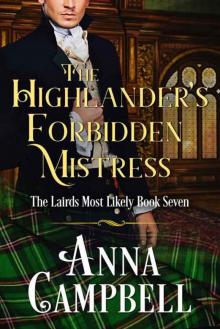 The Highlander's Forbidden Mistress
The Highlander's Forbidden Mistress Tempt the Devil
Tempt the Devil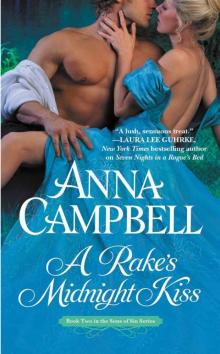 A Rake's Midnight Kiss (Sons of Sin)
A Rake's Midnight Kiss (Sons of Sin) Seven Nights in a Rogue's Bed
Seven Nights in a Rogue's Bed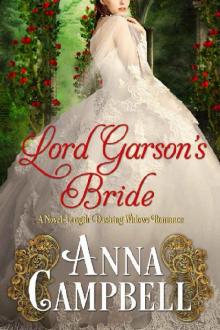 Lord Garson’s Bride
Lord Garson’s Bride Pursuing Lord Pascal
Pursuing Lord Pascal Three Proposals and a Scandal: A Sons of Sin Novella
Three Proposals and a Scandal: A Sons of Sin Novella A Scoundrel by Moonlight
A Scoundrel by Moonlight The Laird's Willful Lass
The Laird's Willful Lass The Winter Wife
The Winter Wife Stranded With The Scottish Earl
Stranded With The Scottish Earl The Laird’s Christmas Kiss: The Lairds Most Likely Book 2
The Laird’s Christmas Kiss: The Lairds Most Likely Book 2 Days of Rakes and Roses
Days of Rakes and Roses Captive of Sin
Captive of Sin Charming Sir Charles (Dashing Widows Book 5)
Charming Sir Charles (Dashing Widows Book 5)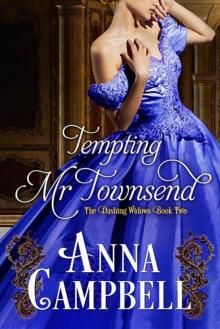 Tempting Mr. Townsend (Dashing Widows)
Tempting Mr. Townsend (Dashing Widows)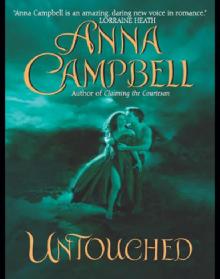 Untouched
Untouched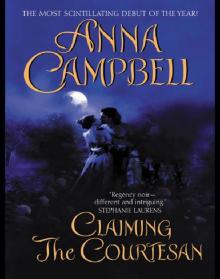 Claiming the Courtesan
Claiming the Courtesan A Pirate for Christmas: A Regency Novella
A Pirate for Christmas: A Regency Novella Her Christmas Earl
Her Christmas Earl The Laird's Willful Lass (The Likely Lairds Book 1)
The Laird's Willful Lass (The Likely Lairds Book 1) My Reckless Surrender
My Reckless Surrender Winning Lord West
Winning Lord West What a Duke Dares
What a Duke Dares